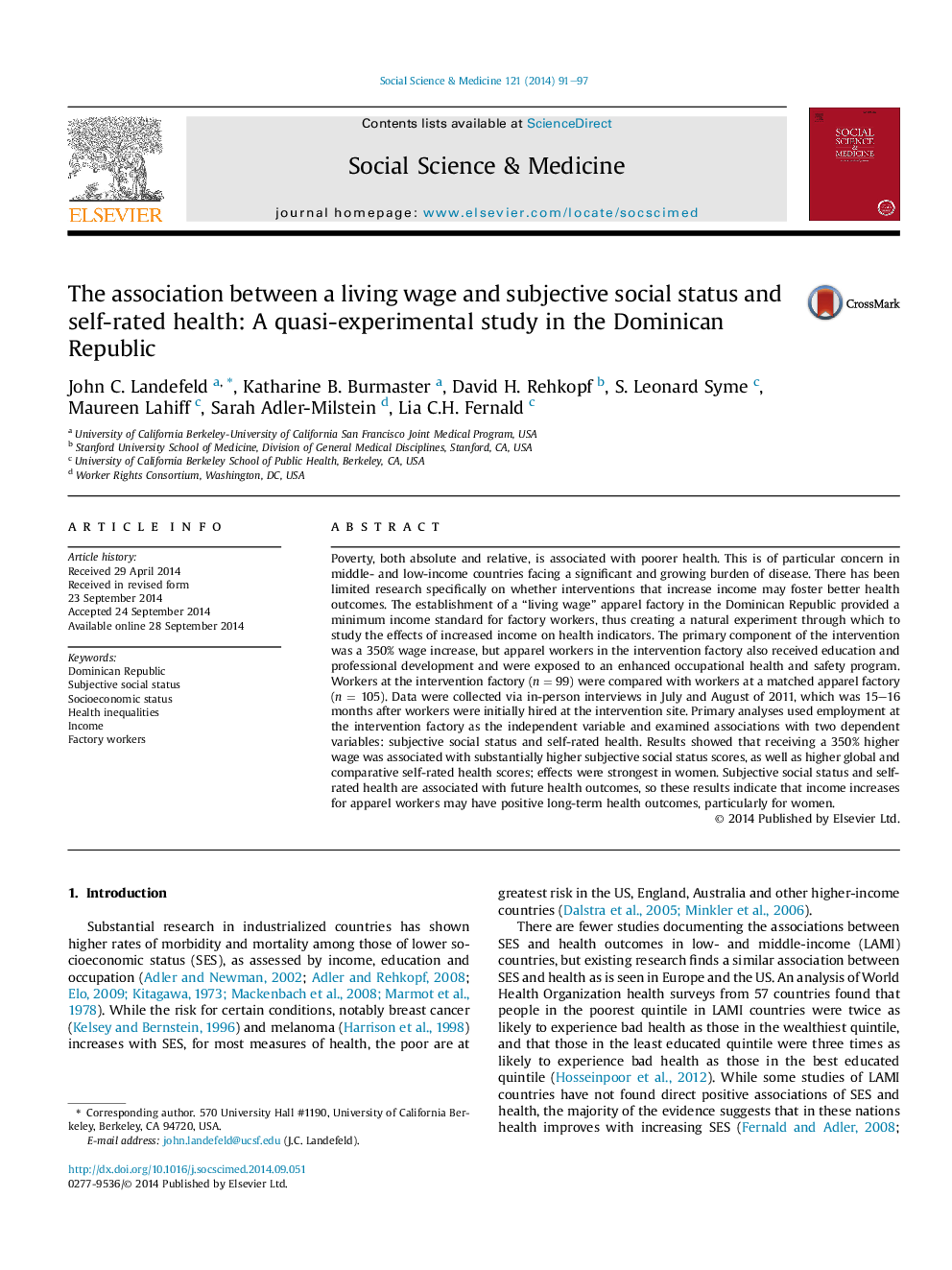| کد مقاله | کد نشریه | سال انتشار | مقاله انگلیسی | نسخه تمام متن |
|---|---|---|---|---|
| 7334215 | 1476047 | 2014 | 7 صفحه PDF | دانلود رایگان |
عنوان انگلیسی مقاله ISI
The association between a living wage and subjective social status and self-rated health: A quasi-experimental study in the Dominican Republic
ترجمه فارسی عنوان
ارتباط بین دستمزد زندگی و وضعیت اجتماعی ذهنی و سلامت خود ارزیابی: یک مطالعه شبه تجربی در جمهوری دومینیکن
دانلود مقاله + سفارش ترجمه
دانلود مقاله ISI انگلیسی
رایگان برای ایرانیان
کلمات کلیدی
جمهوری دومینیکن، وضعیت اجتماعی ذهنی، وضعیت اجتماعی و اقتصادی، نابرابری های بهداشتی، درآمد، کارگران کارخانه،
موضوعات مرتبط
علوم پزشکی و سلامت
پزشکی و دندانپزشکی
سیاست های بهداشت و سلامت عمومی
چکیده انگلیسی
Poverty, both absolute and relative, is associated with poorer health. This is of particular concern in middle- and low-income countries facing a significant and growing burden of disease. There has been limited research specifically on whether interventions that increase income may foster better health outcomes. The establishment of a “living wage” apparel factory in the Dominican Republic provided a minimum income standard for factory workers, thus creating a natural experiment through which to study the effects of increased income on health indicators. The primary component of the intervention was a 350% wage increase, but apparel workers in the intervention factory also received education and professional development and were exposed to an enhanced occupational health and safety program. Workers at the intervention factory (n = 99) were compared with workers at a matched apparel factory (n = 105). Data were collected via in-person interviews in July and August of 2011, which was 15-16 months after workers were initially hired at the intervention site. Primary analyses used employment at the intervention factory as the independent variable and examined associations with two dependent variables: subjective social status and self-rated health. Results showed that receiving a 350% higher wage was associated with substantially higher subjective social status scores, as well as higher global and comparative self-rated health scores; effects were strongest in women. Subjective social status and self-rated health are associated with future health outcomes, so these results indicate that income increases for apparel workers may have positive long-term health outcomes, particularly for women.
ناشر
Database: Elsevier - ScienceDirect (ساینس دایرکت)
Journal: Social Science & Medicine - Volume 121, November 2014, Pages 91-97
Journal: Social Science & Medicine - Volume 121, November 2014, Pages 91-97
نویسندگان
John C. Landefeld, Katharine B. Burmaster, David H. Rehkopf, S. Leonard Syme, Maureen Lahiff, Sarah Adler-Milstein, Lia C.H. Fernald,
